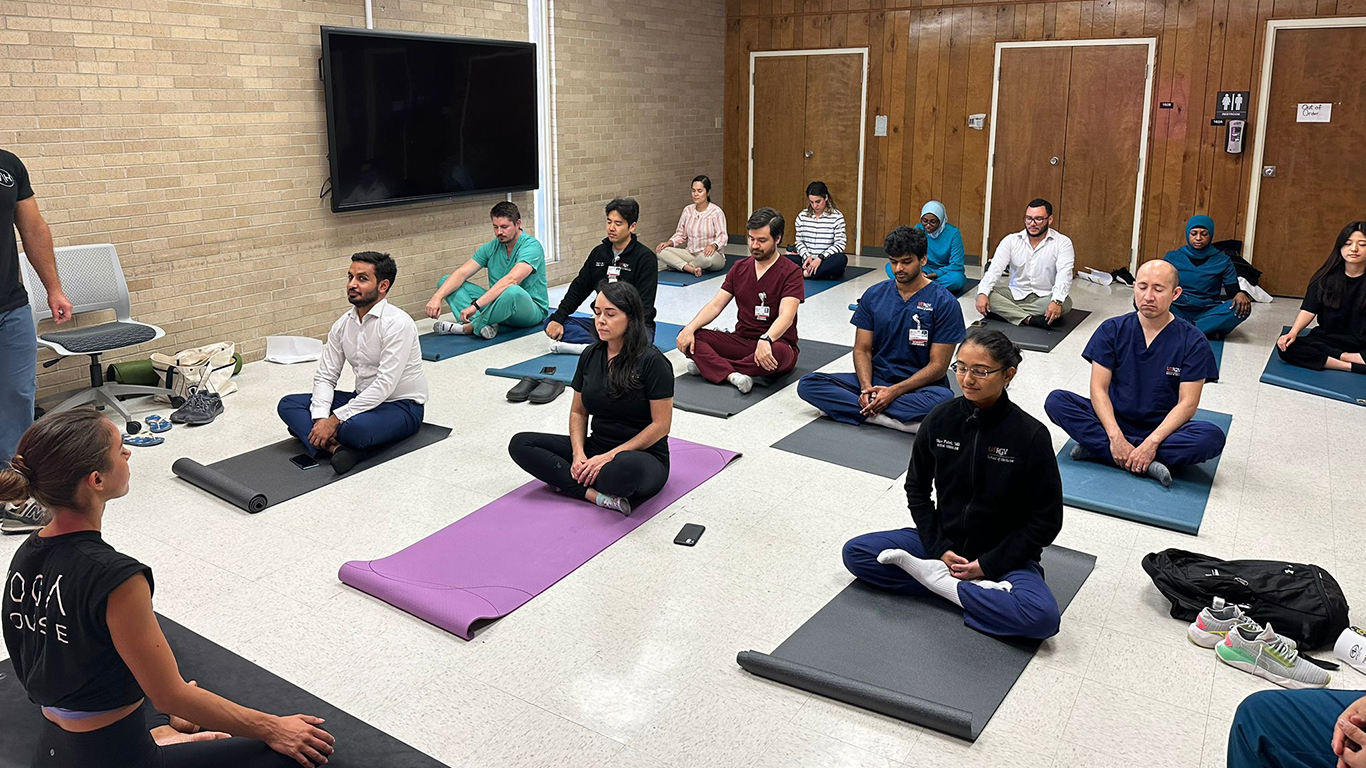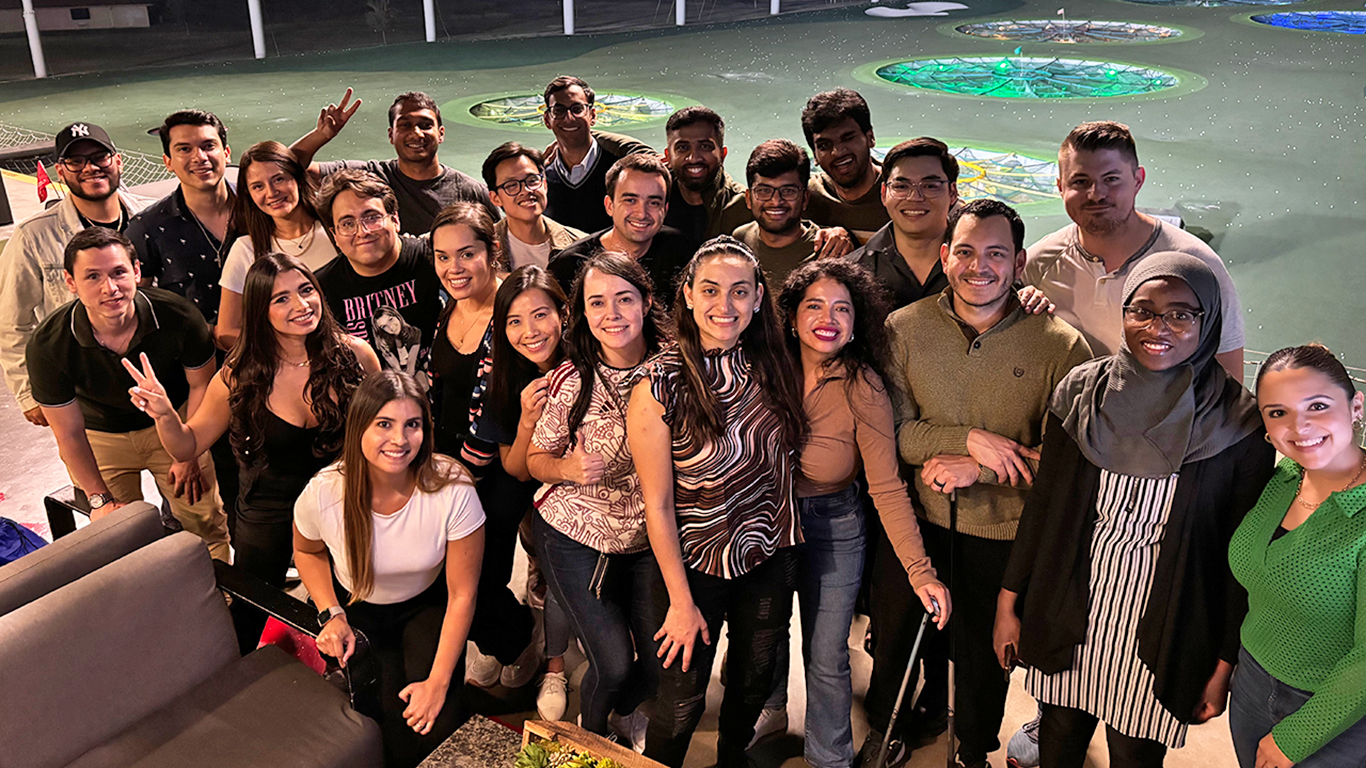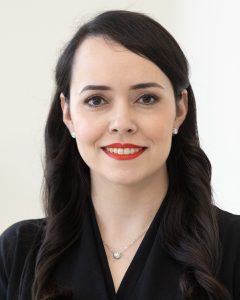 By Dr. Martha Maricela Solis
By Dr. Martha Maricela Solis
Recipient of the 2023 Grant Opportunity for J-1 Physicians: Well-being Projects Supporting Foreign National Physicians
I grew up in a town in northern Mexico, 20 minutes from the U.S. border, with a population of fewer than 5,000 people. I lived in a very small world back then, but my aspirations were big. I always dreamt of becoming a doctor, and through hard work and my parents’ support, I was able to go to medical school with a full ride. During medical school, I didn’t stop dreaming; I still wanted more. I wanted to train in a place where I could access the newest technology and resources, so I could deliver the best evidence-based medicine to my patients. That’s how training in the United States became my next dream.
The day I matched in internal medicine, back in March 2020, was one of the happiest days of my life. My dream was about to come true. But in the following days, my dream turned into a nightmare. Due to the COVID-19 pandemic, the United States officially closed its borders until further notice. My country was also at a standstill with most governmental offices closed, including the Mexican Secretariat of Health, the agency in charge of granting Statement of Need (SoN) letters. A few days later, my hope returned as the Secretariat of Health began to process my SoN. The U.S. embassies allowed emergency appointments, and I got my J-1 visa. I finally crossed the border one month before starting residency. My next obstacle came right away. I needed to apply for a social security number (SSN), but the offices were closed due to the pandemic. My only choice was to send my passport with my stamped visa and Form DS-2019 through the mail to an office nearby and pray that my most valuable belongings at that time didn’t get lost in the mail. Fortunately, my prayers were answered: I got my SSN one day before my first day of residency.
Soon after starting residency, I realized that my challenges weren’t over even though I had made it to my U.S. training program. I was now navigating a health system I didn’t have experience with through electronic medical records I had never used before, and to make matters worse, I didn’t even know how to present patients during rounds. I was lost. I could see my U.S. medical graduate (USMG) peers thriving and feeling so confident that it only made me feel more incompetent. It was hard, and it took me a few months to catch up to my USMG peers, but in the end, I was able to make my dream of training successfully in the United States come true.
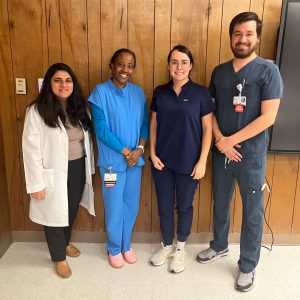
A few days before my graduation, I received an email announcing the Grant Opportunity for J-1 Physicians for well-being projects supporting foreign national physicians. I immediately thought it was an amazing idea and I appreciated the initiative of Intealth and the U.S. Department of State. They were aware of how difficult the transition to the United States is for J-1 residents and wanted to help. I wasn’t too sure about applying, though. I felt it was a long shot—after all, this was a national call. But I couldn’t stop thinking what a great opportunity it was. The more I thought about it, the more it made sense to apply. First, because I had experienced the struggle of being a J-1 resident firsthand and knew what would have helped me. Second, because I was a PGY-3 going into a PGY-4 chief residency year, I would have the time to implement the project if selected because a chief resident’s duties included advocating for resident wellness. And third, because our program, the internal medicine residency program at the University of Texas Rio Grande Valley Knapp Medical Center, has a high number of J-1 residents (in 2023, 22 out of the total of 44 internal medicine residents were on a J-1 visa)—this made the project very relevant to us. The more I thought about it, the less it seemed like an option and more like a duty: I should apply so I could help our current and incoming J-1 residents because I wanted them to have an easier time than I did.
And guess what? I got it! I couldn’t believe it when I received the email saying I was one of the three grantees in the whole nation. What were the odds? I felt so proud of myself, of that small-town girl who never stopped dreaming. And I felt so excited for the opportunity I was given to help my fellow J-1 residents. As you read about our project, its execution, and its impact on our program in the coming paragraphs, I hope you can find inspiration and come away with some ideas that will help you and the J-1 physicians at your institution.
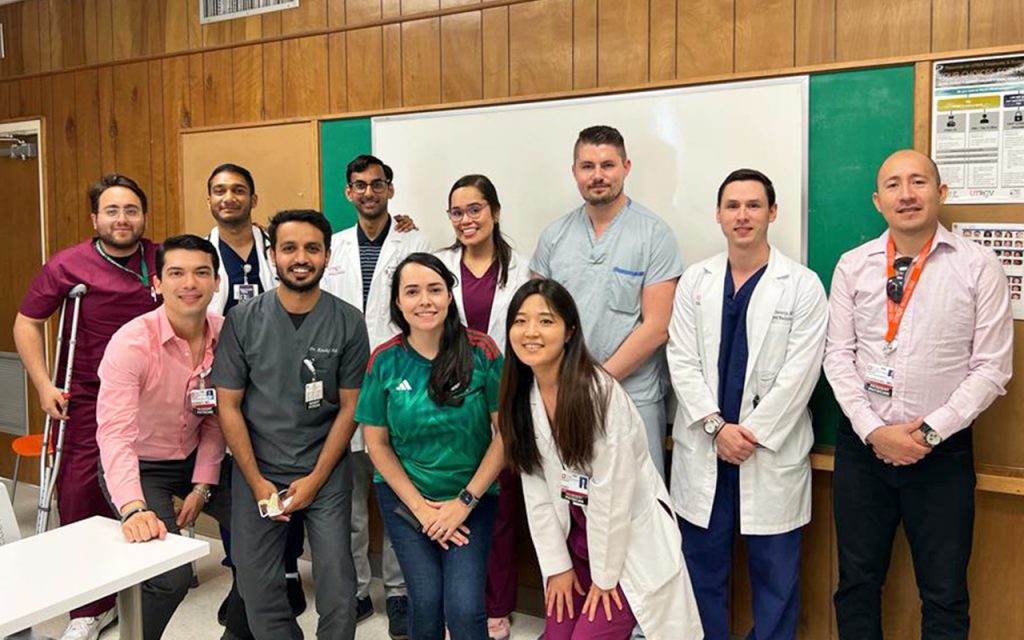
Our project involved a series of five monthly meetings, about one hour in duration, dedicated to covering topics of interest for J-1 residents, especially interns. The informative sessions were coupled with a wellness activity, and lunch was provided. In the welcome meeting, we shared information about our Training Program Liaison (TPL) and covered four topics: how to get your driver’s license; general visa/DS-2019 information; medical jargon in residency; and how to present patients during rounds. At the end of this first meeting, we created a WhatsApp support group and assigned senior mentors to all interns. At the second monthly meeting, we shared information on how to anonymously report discrimination at our university. The third meeting was about how to file a tax return. The fourth meeting was about how to renew your J-1 visa. At the end of each session, every resident was asked to anonymously fill out a wellness questionnaire to screen for depression, anxiety, PTSD, and substance abuse. At the end of the project, residents were asked to fill out a final survey that sought to examine whether the participants in the project had found the informative sessions, the WhatsApp group, and the mentoring assignment helpful and to what extent each had helped them; also, to find out which wellness activities were the most popular. The grant funds were used to provide lunch during the meetings and to pay for the wellness activities, which included a private yoga session held in our classroom, an escape room activity, an axe throwing activity, and a Top Golf session.
We carried out our project as planned, and in the end, we received very good feedback from our J-1 residents. Most senior residents said they would have liked something similar to this project when they were interns. Some of the testimonials mentioned how the participants truly believed these activities had improved their well-being by having fun with their peers, which helped them cope with the stress from residency duties. Many residents congratulated me and invited us to continue these efforts in the following years. For me, it was an extremely gratifying experience. Getting the opportunity to make their lives a tiny bit easier was all I wanted.
In the anonymous wellness questionnaires, we noticed that a resident screened positive for at least one item (depression, anxiety, and PTSD) in every meeting. Fortunately, over time, the screening results trended towards improvement, with three positive items on the first questionnaire and only one in the final questionnaire. It was troubling to learn that residents might be struggling, so we reached out to all of our J-1 physicians and provided them with information on how to seek mental health support.
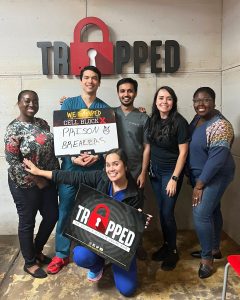
The WhatsApp group was one of the most impactful elements of our project. This group offered a judgement-free space where J-1 residents could ask any questions not only to me, but to the other J-1 residents as well. The most beautiful thing about this group was seeing everyone pitch in to help answer questions for each other. The informative sessions were another low-effort and free way to support my J-1 physician peers. Through the process of researching the necessary information and making the presentations, I even learned a lot. This content will be passed along to future J-1 residents in our program so they can continue this important knowledge-sharing in the years to come.
Through this project, I learned that you can have a big impact through seemingly small actions. I also learned that preventative mental health screening for residents is worth the effort to help inform what support is offered. Mental health issues affect J-1 residents, and in fact, all residents, so we must not overlook them. Finally, I learned how much I enjoy advocating for my fellow J-1 residents, so much so that I look forward to continuing the effort. As part of this effort, I set up an orientation meeting with the new J-1 residents soon after Match day so we could deliver the information in our presentations as early as possible and try to prevent as much stress as we can. We would like to incorporate it as a formal orientation every year for the future classes of J-1 interns.
If you have made it to this last paragraph, thank you for attention to our project. In addition to thanking you for reading, I would like to invite you to join this well-being effort. If you are an IMG, think back in time to your first month of residency and remember how hard it was. Don’t you agree that no one should be alone during those stressful days? Hopefully, after reading my story, you can realize that you have the power to help. I promise, it doesn’t take much. It could be as simple as lending an ear to a troubled intern or as complex as working with your program’s leadership to create policies to assist J-1 residents. However big or small of an action you take, I can assure you it won’t go unnoticed. Let’s help each other navigate the J-1 journey together.
In 2023, Intealth launched the inaugural Grant Opportunity for J-1 Physicians: Well-being Projects Supporting Foreign National Physicians. This well-being initiative, led by Intealth and funded in part by the U.S. Department of State, awarded grants of up to $5,000 to three J-1 physician-led projects supporting the well-being of foreign national physicians at their host institutions. This entry is about one of those projects. For more information on this initiative and details about this project, click here.

